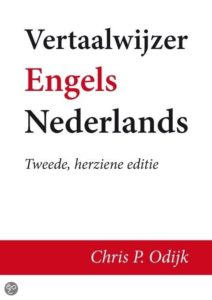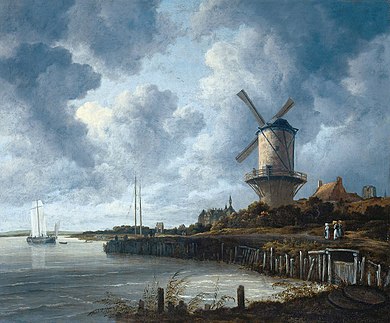The Dutch-English & English-Dutch General Translation Course is intended for anyone who wishes to do Dutch-English and/or English-Dutch translation jobs at a professional level and is therefore eminently suitable for those who intend to take an intensive training course to enhance and update their knowledge and skills in this field.
The course is aimed at:
(a) those who wish to become ‘court-sworn’ Dutch-English and/or English-Dutch translators by taking the test to be held at the end of the two-year training course or after one of the shorter course options (the diploma entitles the participant to apply for registration in the Register of Sworn Interpreters and Translators);
(b) beginning or experienced translators for the English language (or translators for other languages) who, in view of the strict requirements placed on them in translation practice, want to take a course in order to lift their technique to a higher professional level, and/or want to gain PE points with the course;
but is also open to:
(c) people whose jobs involve a great deal of translation work and who want to lift their English writing skills to the highest possible level; this may include professional such as editors, journalists, secretaries and the like;
(d) people who like to work on Dutch-English and/or English-Dutch translations without aspiring to take part in any examination or external test and/or to do translation jobs at a professional level.
Two course options
There are two course options:
(a) the online Dutch-English & English-Dutch General Translation Course [this course is held only if there are sufficient participants] and
(b) the Dutch-English and/or English-Dutch General Translation Correspondence Course. (This course option comprises various versions.)
N.B. The online course consists of a series of sessions by Microsoft teams (or another tool). The correspondence course is conducted entirely through email.
Course structure
Those who wish to take the full two-year online or correspondence course (and who might want to take the test (the ‘Institute Examination’) at the end of this programme) have to enrol for the two-year programme for both directions: the first year (30 classes/assignments) and a ‘test year’ (30 classes/assignments).
Students who successfully completed the first year receive a certificate and are entitled to enrol for the ‘test year’. Students who have successfully completed the test year receive a certificate, which entitles them to sign up for the test (Institute Examination), either in one or in two translation directions.
N.B.1 Experienced students who have taken a translation course, or part thereof, elsewhere may, if they wish, enrol directly for the test year (online or correspondence version).
N.B.2 Experienced students who wish to sit the test as soon as possible may also enrol for a ‘one-term correspondence course’, i.e. a series of 10 assignments, after which they can also enrol for the test (either in two translation directions or in one translation direction). However, the one-term courses do not exist in an online format.
N.B.3 The course can of course be taken without taking the test.
N.B. 4 The correspondence course is flexible: you can enrol for the full year programme in both translation directions (N-E and E-N) or for the year programme in one translation direction (either N-E or E-N). In addition, one can enrol for the N-E/E-N written trimester course (10 lessons/assignments), either for one or two translation fields. Moreover, this trimester course has two programme variants:
1. variant a, which is open to all;
2. variant b. The latter is linked to a test and is only open to students who wish to sit the test. (In the case of variant B, the programme content is tailored to the way the test is held).
Admission
There are no formal admission requirements, but it goes without saying that those without basic knowledge and skills are ill-advised to sign up for the course. Prospective students who have doubts about their translation skills are recommended to make these test translation(s) and to mail them to us. The costs are EUR 45 (for 1 assignment) or EUR 75 (for 2 assignments). The translations are then reviewed and returned, accompanied by commentary and advice.
It is also possible to take a short introductory correspondence course in Dutch-English and/or English-Dutch general translation. This will enable the student to find out whether the course is suitable for him or her. This introductory programme consists of three assignments and is concluded with an evaluation session.
Study Workload
The study workload for the course should not be underestimated: in each week and for each assignment you should spend some hours on making translations (per text ranging from about 150 to about 750 words). In addition, you should obviously study the corrected work and work out the additional grammar tasks, which will take you about one hour per week. In addition you are expected to surround yourself with English: you read English novels, magazines or papers or you watch English television. A translator should, after all, master the culture of the English speaking World and follow the news with a ‘translator’s eye’. You should count at least three hours per week for this.
Study workload for the full course: about 8 to 9 hours per week (regular version) or assignment (correspondence version).
Study workload for the Dutch-English General Translation Correspondence Course: approx. 4 to 5 hours per assignment.
Study workload for the English-Dutch General Translation Correspondence Course: about 3 to 4 hours per assignment.
Course fee
(1) The online Dutch-English & English-Dutch General Translation Course
[This online course is held only if there are sufficient participants.]
The online course costs EUR 1,150 per year if the tuition fee is paid in full at the start of the course; if the fee is paid in three instalments, the course costs EUR 1,425 (EUR 475 per instalment).
(2) The correspondence version of the Dutch-English and/or English-Dutch General Translation course
The full correspondence version of the course costs EUR 1,050 per year if the tuition fee is paid in full at the start of the course; if the fee is paid in three instalments, the correspondence course costs EUR 1,350 (3 x EUR 450).
The options are the following:
– Year-long online programme for both directions: EUR 1,150 or, if the student prefers payment in instalments: EUR 1,425 (3 x EUR 475) // year-long correspondence version of the course for both directions: EUR 1,050 or, if the student prefers payment in instalments: EUR 1,350 (3 x EUR 450)
– Year-long online programme D-E: EUR 750 or, if the student prefers payment in instalments: EUR 900 (3 x EUR 300) // Year-long correspondence version D-E: EUR 650 or, if the student prefers payment in instalments, EUR 750 (3 x EUR 250)
– Year-long online programme E-D: EUR 550 or, if the student prefers payment in instalments: EUR 750 (3 x EUR 250) // Year-long correspondence version E-D: EUR 450 or, if the student prefers payment in instalments: EUR 600 (3 x EUR 200)
– One-term programme both directions (both for the A and B Version): EUR 350
– One-term programme D-E (A Version): EUR 350
– One-term programme D-E (B Version): EUR 350
– One-term programme E-D (A Version): EUR 300
– One-term programme E-D (B Version): EUR 300
Examination fee: EUR 500 for both translation directions (both Dutch-English and English-Dutch) and EUR 250 for one translation direction (either Dutch-English or English-Dutch).
(3) The Dutch-English and/or English-Dutch Introductory General Translation Correspondence Course (three assignments each consisting of one D-E translation and an E-D translation), which is concluded with an evaluation session: EUR 150
Dutch-English Introductory General Translation Correspondence Course (consisting of three Dutch-English translations), which is concluded with an evaluation session (at the course location or as a Skype session): EUR 95
English-Dutch Introductory General Translation Correspondence Course (consisting of three English-Dutch translations), which is concluded with an evaluation session (at the course location or as a Skype session): EUR 95
N.B. Students who enrol for one of the regular or correspondence General Translation Courses after having completed one of the introductory courses, are entitled to a EUR 50 discount of the course fee for the relevant course option.
D-E + E-D trial translation: EUR 75
D-E trial translation: EUR 45
E-D trial translation: EUR 45
The study material to be provided during the course is included in the course fee; study books are for account of the student.
Diploma & Certificate
The full two-year course programme is subject to an examination. Students who pass this examination are awarded the Institute Diploma. With this diploma the student satisfies the training requirements for registration in the Register of Sworn Interpreters and Translators. A
The examination is also open to students who have successfully completed the B Version of the corresponce course or the B Version of one of the one-term correspondence courses. The student who has completed a one-term course in one translation direction may take the examination only in the relevant translation direction.
It is also possible to take the course without taking part in the examination. Students who have successfully completed the entire course, a full course year or a specific course option will receive a certificate and – if applicable – a Wbtv statement for the award of PE points.
PE points
Pursuant to a decision dated 26 February 2016, the following points are awarded to the regular version of the General Translation Course:
– Dutch-English / English-Dutch General Translation Course (the full two-year programme): 420 PE points
– Dutch-English / English-Dutch General Translation Course (the full one-year programme): 210 PE points
Pursuant to a decision dated 26 February 2016, the following points are awarded to the various versions of the Dutch-English / English-Dutch General Translation Correspondence Course:
– Dutch-English / English-Dutch General Translation Correspondence Course (the full two-year programme): 420 PE points
– Dutch-English / English-Dutch General Translation Correspondence Course (the full one-year programme): 210 PE points
– Dutch-English General Translation Correspondence Course: 90 PE points
– English-Dutch General Translation Correspondence Course: 60 PE points
– One-Term Dutch-English / English-Dutch General Translation Correspondence Course: 80 PE points (Both for the A and B Version)
– One-Term Dutch-English General Translation Correspondence Course (A Version): 80 PE points
– One-Term Dutch-English General Translation Correspondence Course (B Version): 80 PE points
– One-Term English-Dutch General Translation Correspondence Course (A Version): 20 PE points
– One-Term English-Dutch General Translation Correspondence Course (B Version): 20 PE points
• Programme for the General Translation Course
• General Translation Survival Kit
• Where and When General Translation Course
• Enrolment for the General Translation Course
• General Terms and Conditions for the General Translation Course
• Enrolment Form for the General Translation Course
• Test translations
• Test your translation skills
• Mistakes Sheet
• Tenses Sheet
• Tenses Exercise
• Correction Symbols
• Example of translation assignment
• Example of returned translation assignment
• Example of model translation assignment



